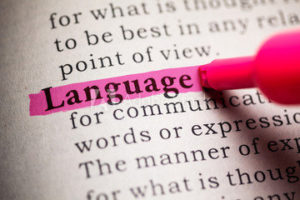
A language is a vast, amorphous consensus among its users as to how words are equivalent to each other and associated with our subjective and objective worlds.
When I use a word,’ Humpty Dumpty said in rather a scornful tone, ‘it means just what I choose it to mean — neither more nor less.’
’The question is,’ said Alice, ‘whether you can make words mean so many different things.’
’The question is,’ said Humpty Dumpty, ‘which is to be master — that’s all.”
― Lewis Carroll, Through the Looking Glass
There is nothing “mere” about semantics!




















